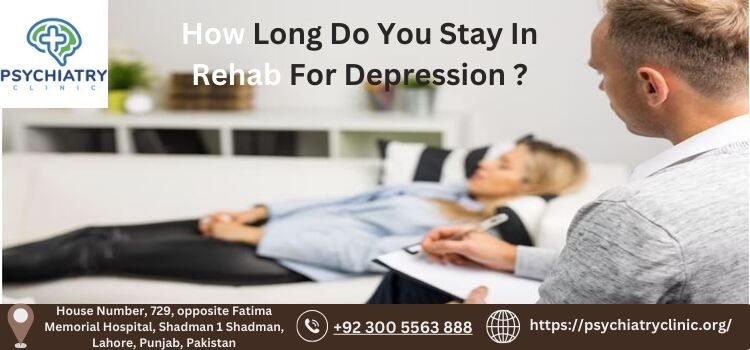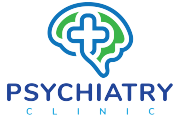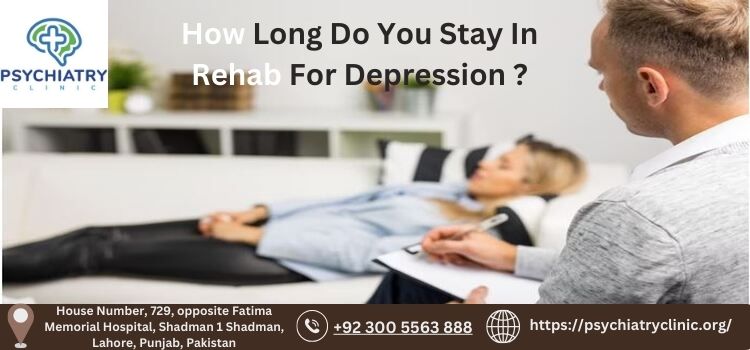How Long Do You Stay In Rehab For Depression ? Comprehensive Guide
Rehabilitation, or rehab for short, is a form of treatment that aims to help individuals recover from various physical and mental health conditions. One common area where rehab is utilized is in the treatment of depression. Depression is a serious and often debilitating mental illness that affects millions of people worldwide. The question arises how long do you stay in rehab for depression ?
In this article, we will discuss the duration of rehab for depression and what factors can influence its length.
Let’s dive in to get more details.
How Long Do You Stay In Rehab For Depression ?

The question arises how long do you stay in rehab for depression ?The length of time an individual stays in rehab for depression can vary depending on several factors. These include the severity of their condition, the type of treatment program they are enrolled in, and their progress during treatment.
Typically, a rehab program for depression can last anywhere from 30 days to one year. However, it is important to note that each person’s journey towards recovery is unique and may require a different length of time in rehab.
Duration of Rehab for Depression
The length of time an individual stays in rehab for depression varies depending on several factors. These include the severity of the condition, individual needs and goals, and the type of treatment program chosen. On average, rehab for depression can take anywhere from 30 to 90 days.
In some cases, individuals may require a longer stay in rehab, especially if they have co-occurring disorders or other underlying issues that need to be addressed. It is essential to understand that there is no one-size-fits-all approach when it comes to rehab for depression. Every individual has unique needs and will respond differently to treatment.
Factors Affecting the Length of Rehab for Depression
As mentioned earlier, several factors can influence how long an individual stays in rehab for depression. Some of these include:
Severity of depression:
The severity of an individual’s depression is a crucial factor in determining the length of time they spend in rehab. Individuals with mild depression may require a shorter stay, while those with severe depression may need a more extended period of treatment. A licensed mental health professional will assess the severity of the condition and recommend an appropriate treatment plan.
Co-occurring disorders:
Co-occurring disorders, also known as dual diagnosis, refer to when an individual has a substance use disorder in addition to depression. In such cases, it may take longer for an individual to recover fully. Treatment for co-occurring disorders usually involves addressing both conditions simultaneously, and this can extend the length of rehab.
Individual needs and goals:
Every individual has unique needs and treatment goals. Some individuals may require more time in rehab to work on specific issues or develop coping mechanisms for managing their depression. It is essential that the treatment plan is tailored to an individual’s specific needs to increase the chances of a successful recovery.
Type of treatment program:
There are various types of treatment programs for depression, including inpatient and outpatient options. In general, inpatient rehab provides a more intensive and structured approach, while outpatient rehab allows individuals to receive treatment while living at home. The type of program chosen can impact the length of time an individual stays in rehab.
The benefits of inpatient and outpatient rehab for depression
Inpatient and outpatient rehab both have their advantages and disadvantages when it comes to treating depression. Inpatient programs provide round-the-clock care and a structured environment, which can be beneficial for individuals with severe depression or those who may not have a supportive home environment. Outpatient programs, on the other hand, offer more flexibility and allow individuals to continue with their daily responsibilities while receiving treatment.
Ultimately, the choice between inpatient and outpatient rehab will depend on an individual’s needs and goals, as well as their financial resources and insurance coverage.
The importance of seeking treatment for depression
Depression is a highly treatable condition, and seeking professional help is essential. Rehab for depression provides individuals with the necessary tools and support to manage their symptoms and improve their overall well-being. It also offers a safe and supportive environment for individuals to address any underlying issues that may be contributing to their depression.
It is important to remember that recovery from depression is a journey, and the length of time spent in rehab may vary from person to person. With the right treatment plan and support, individuals can successfully overcome their depression and lead fulfilling lives.
Seek Professional Help
If you or a loved one is struggling with depression, do not hesitate to seek professional help. A licensed mental health professional can assess your condition and recommend an appropriate treatment plan. Remember, seeking treatment is the first step towards recovery. You are not alone in this journey, and there is always hope for a better future.
So reach out for help and take that first step towards a healthier and happier life. Remember, you are worth it. Keep fighting for your well-being and never give up.
Conclusion
The most question asked by people how long do you stay in rehab for depression ?Rehab for depression can last anywhere from 30 days to one year, depending on various factors. These include the severity of an individual’s condition, co-occurring disorders, individual needs and goals, and the type of treatment program chosen.
Both inpatient and outpatient rehab have their benefits when it comes to treating depression, and the choice between the two will depend on an individual’s specific needs and circumstances. Seeking professional help for depression is crucial, as it offers individuals the necessary support and tools to manage their symptoms and improve their overall well-being.
FAQs
The frequently asked questions by people.
What exactly happens in depression?
Depression is a mental health condition that causes feelings of sadness, hopelessness, and loss of interest in activities that were once enjoyable. It can also lead to physical symptoms such as changes in appetite, sleep patterns, and energy levels.
What are the top 3 symptoms of depression?
The top three symptoms of depression are persistent feelings of sadness, loss of interest in activities, and changes in sleep patterns and appetite.
What are the 5 levels of depression?
The 5 levels of depression are: Mild ,Moderate, Severe, Chronic, Psychotic.

